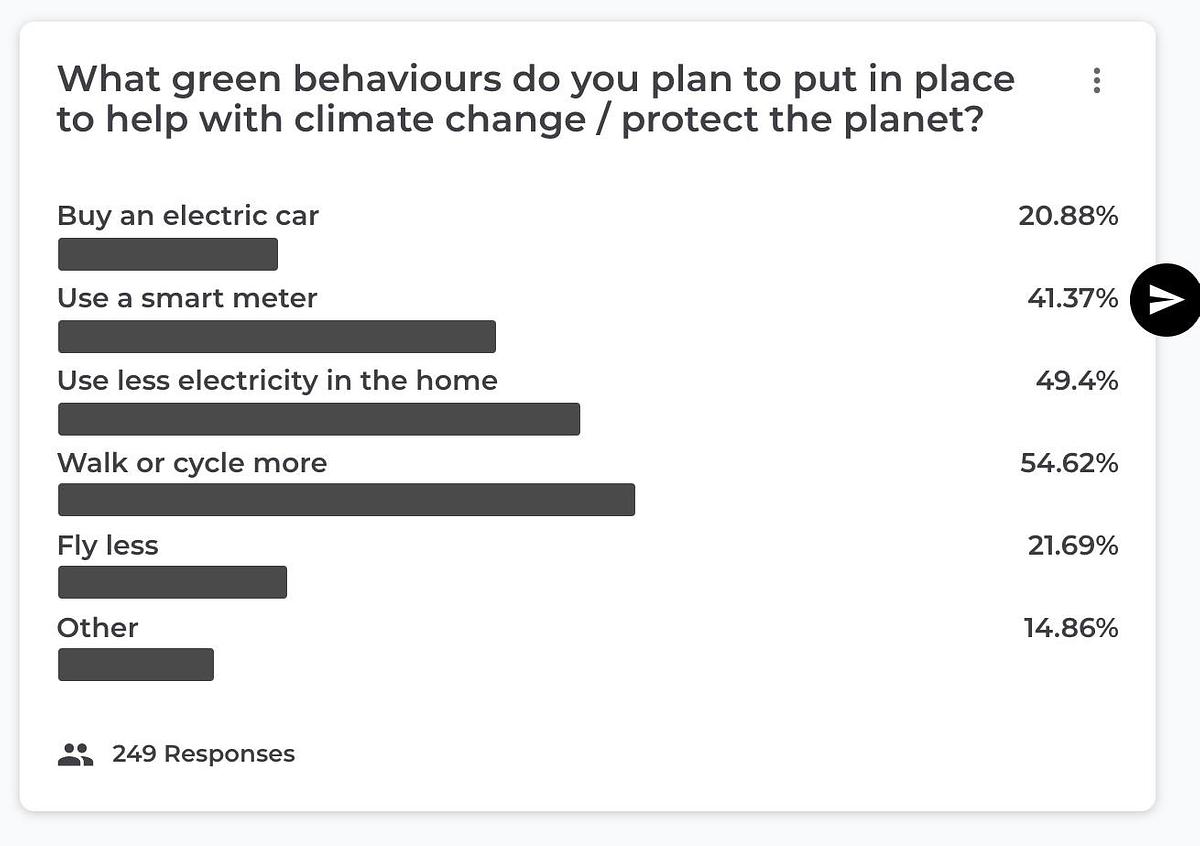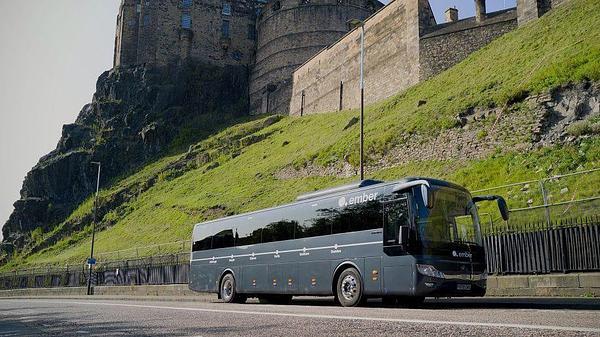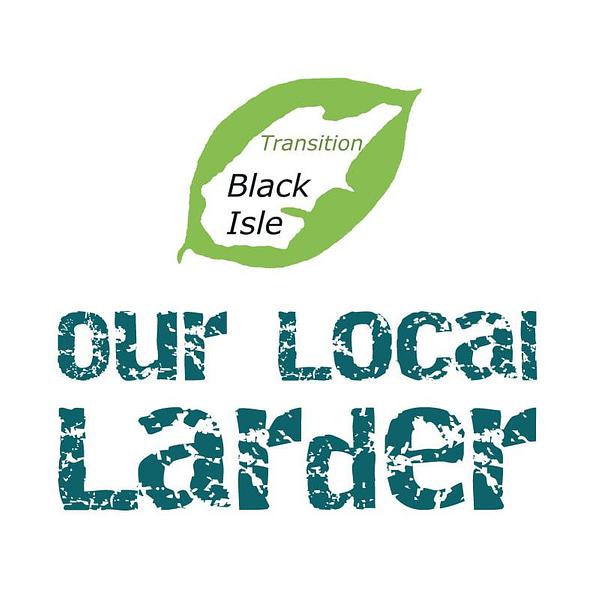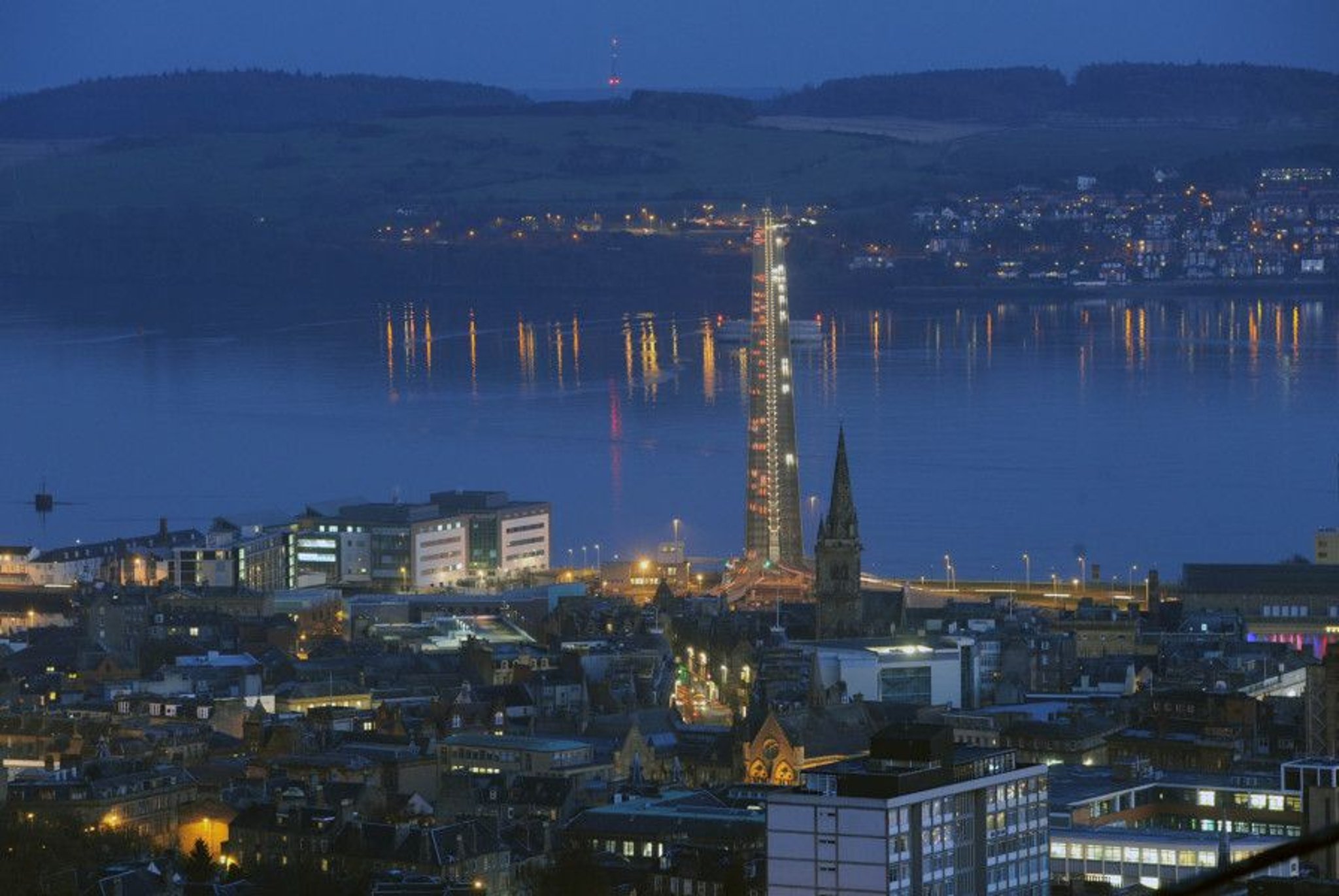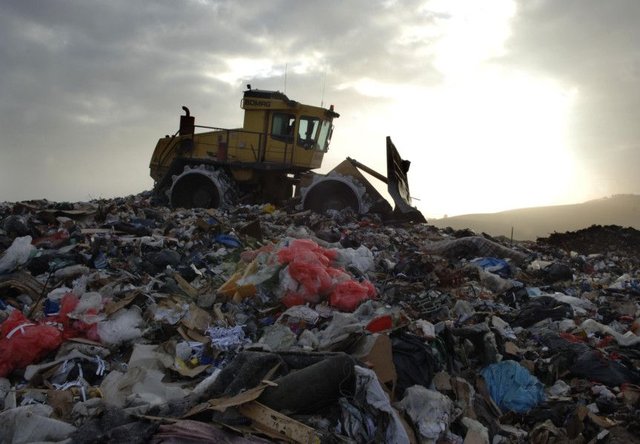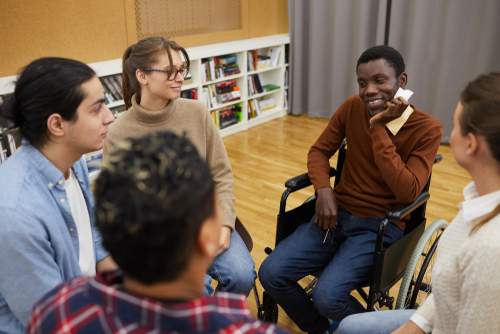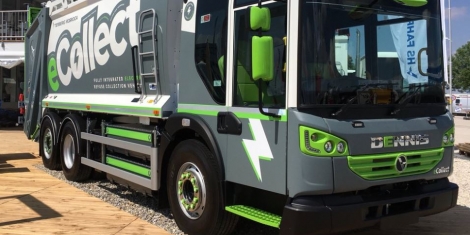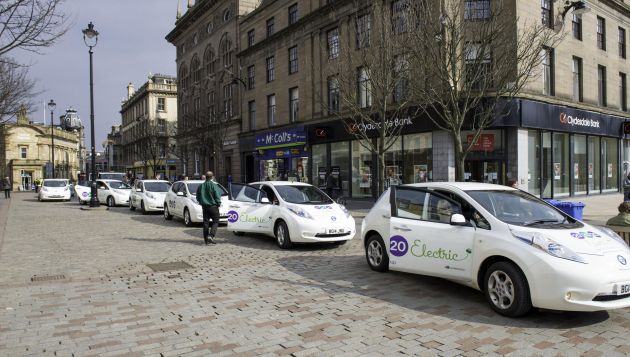As Scotland and the rest of the world reflects on COP26 in Glasgow, hopes are high that real, significant change could happen.
Yet it’s not just world leaders who hold the power to solve the climate crisis: we can all cut carbon emissions and work together towards a more sustainable future.
All across Scotland, people are playing a part in putting the planet first, from council leaders to business owners and community groups.
Now and exclusive poll shows more than half of participants in a Scotsman poll said COP26 had made them want to live more sustainably.
The survey, carried out by One Pulse following the end of the Glasgow event, asked 249 people 'Has COP26 made you want to live more sustainably?"
A total of 52% of respondents said that it did, while 28% disagreed and 20% said that they were unsure.
COP26 was praised for achieving consensus amongst countries over cutting methane emissions, reducing deforestation and increasing funding for climate adaptation in developing countries.
However, many felt that the conference did not take the radical action needed to keep global warming below 1.5 degrees.
The poll findings reflect this sentiment.
What can you do today?
Small steps can begin at home, with the power that is in our hands: to use energy more efficiently. Requesting a smart meter installation from your energy supplier, at no extra cost, will enable you to see how much energy you are using and to cut down on any unnecessary usage, which can also help you save on bills.
Having a smart meter in our households can help to create a greener, more sustainable and resilient future – and save time and money now.
Here are some encouraging insights from Scots focused on sustainability as we all journey towards net zero carbon…
Home economics
One of the biggest challenges in reducing our CO2 emissions is managing energy consumption in our homes.
Homes are currently responsible for one-fifth of the UK’s total emissions – making the introduction of energy-saving measures like additional insulation and smart meters a huge step forward to decarbonising Britain.
The UK has the least energy-efficient housing stock in Western Europe, which can mean high heating costs for low-income households, particularly as energy prices rise in winter.
Installing insulation in lofts and walls and double-glazing windows can all reduce carbon emissions and keep energy bills down.
In the smart homes of the future, new products and services will work together to make it easier for us to change our energy behaviours and become more efficient. A smart meter in every home will be part of the solution to help make that future possible.
Smarter travel
EVA Scotland has a mission to be the voice of the electric vehicle (EV) movement all over Scotland, supporting the electrification of all forms of transport. Their interest extends beyond cars to e-bikes, e-motorbikes, electric boats and ferries and – soon – electric planes.
Neil Swanson, one of its five directors, says a sustainable future depends on all of us becoming “more resource-efficient” as well as making use of public transport where possible.
Among the exciting initiatives across the country is Ember, the UK's first all-electric, intercity bus service between Edinburgh, Dundee, Perth, Kinross and more, which offers a great way to travel with zero emissions; electric taxis are also useful for short journeys as part of the mission “to take cars off the street”.
Charging facilities can be seen as a barrier for many considering EV ownership, but Neil says the mantra is “always be charging”, adding: “People have to change their mindset about how they fill their cars – it is more efficient and significantly cheaper to fill up slowly. Most cars are parked for 22 hours a day, and that is the point when you charge them.”
He acknowledges that people who can’t charge at home face the biggest challenge which is why EVA Scotland has been working with local authorities to develop on-street charging facilities which are both efficient and affordable. As batteries get bigger, meaning a greater mileage range, any network developed now must be able to meet future needs as well.
Car clubs and other share schemes are making EVs attainable, with organisations like Connected Kerb accelerating the transition to sustainable mobility for everyone with reliable, affordable and accessible electric vehicle charging solutions.
For those who do still need a car, owning a smaller vehicle that takes up less space on the roads and costs less to run, and then hiring a larger one for longer summer holiday trips may work out cheaper.
Find out more at: Electric Vehicle Association Scotland
Can cars ever be the good guys?
The visionary ReFlex Orkney project aims to decarbonise the three main areas of energy use – heat, transport and electricity – by digitally linking 100 per cent renewable energy with demand and storage into a flexible integrated energy system.
As part of this, they are seeking to significantly increase EV use in Orkney with discount rates exclusive to residents to make leasing electric cars and vans even more affordable, along with the chance to buy-to-order second-hand electric cars with the help of EV specialist Jonathan Porterfield of Eco-cars.
According to Jonathan, the main stumbling blocks to EV ownership are the cost, the range anxiety (concern about the limited number of miles the car can do on a full charge – this can span from 110 miles to 373 miles), and worries about battery life. But all that could be about to change as the ReFLEX project shows how integrated intelligent local systems can deliver power, heat and mobility to users in new and better ways in a world first.
As well as providing cleaner, greener transport, EVs play a pivotal part in the scheme “not just as modes of transport but as energy storage devices”, helping to balance the grid and use electricity in a smarter way. This vehicle-to-grid technology offers access to the EVs’ battery storage when plugged in, allowing the vehicles to hold excess electricity and release it back to the grid when it’s needed.
This is ideal for an island like Orkney which has generated over 100 per cent of its electricity demand from renewable power sources since 2013.
Find out more at: Reflex Orkney
Local heroes
Depending on others can take a significant mind shift for many of us, but it’s at the heart of the work being done by Transition Black Isle since it was founded 12 years ago as part of an international movement to reduce our carbon footprint through local activities.
Founding member Anna Thomas says its aim has always been to help communities thrive in the face of the climate crisis and offer a positive example of how to manage our resources more sustainably.
“It is about showing people a model of what can be done and how that can offer a better lifestyle than just business as usual,” she says. “It is working out solutions that work for people… doing things together as a community instead of saying ‘things are terrible’ and making people feel bad.”
Community markets form a key part of this sharing approach, connecting local producers with customers to encourage consumption of locally grown food and limit food miles – mindful of the fact that so much of what we eat is imported when it could just as easily be grown here.
“We have put together a local food producer and restaurant guide online at blackislelarder.org to help people find what is available locally,” says Anne. “And we have held community growing sessions, Grow North, a series of workshops that offered a gardening guide to growing in Scotland.”
Members have opened their green homes in the past “to see people who have had solar panels installed or got a wind turbine” and allow others to learn what to do with the renewable energy technology available to us all – this is now being run in conjunction with environmental charity Changeworks which has compiled a number of case studies on saving energy at home.
Find out more at: Transition Black Isle
Answers on a plate
Fighting food waste is a big part of Martin Sherring’s mission, as part of the Transition Black Isle movement, along with tackling the health problems – including obesity and diabetes – that can result from a poor diet. He says the emphasis on economic growth at the expense of our planet’s resources is the wrong approach, with a more sustainable way of living our only option for the future.
“We know that something like 8-10 per cent of global greenhouse gas emissions comes from producing food that is ultimately wasted, and that seems like an obvious low-hanging fruit to address,” he says.
Globally, around a third of all food produced is lost or wasted and, in local authority areas in the UK where food waste is not collected separately, this ends up in landfill, producing methane and contributing to global warming. Initiatives like the Highland Good Food Partnership want to see the development of community-based growing projects, which educate people about food and diet, improving both physical and mental health and making them more aware of the environmental impacts of the food they consume.
Asked his top three tips for a more down-to-earth approach to the food we eat, Martin recommends: “Firstly, find ways to buy food from local producers and they will tell you how they grow their food. Secondly, don’t buy anything containing ingredients that you don’t have in your kitchen.
“And, if you can, even growing herbs on the windowsill can give you a better sense of the value of food. It doesn’t need to take much space or time, a few basil or parsley seeds require virtually no attention.”
Highland Tourism is a community interest company set up to drive a sustainable future for tourism in the Highlands. Chair Yvonne Crook says that while the £1.5bn industry is passionate about adapting to become more sustainable, a lack of strategy, including training and development programmes, risks holding it back.
"As we work to achieve a net zero goal, our strategy is to work in partnership with all those involved in developing and delivering a more sustainable future for the Highlands, including the significance of the renewable energy industry,” she says.
"This strategic approach, we believe, will provide the tourism industry with direction, provide a story for visitors that will energise them. It offers a leadership approach for businesses and communities that will enable an ambitious and innovative approach to net zero that will change the face of tourism in the Highlands for the benefit of future generations.
“Individual businesses can invest in initiatives including creating an energy plan, reviewing ways in which carbon footprint can be reduced, switching to sustainable energy suppliers and even generating their own energy."
Visitors looking for more sustainable ways to experience the Highlands should check out escapetothehighlands.org, launching later this year, which will showcase sustainable Highland tourism businesses and provide conscious travel tips and information.
This small tourism business on the outskirts of Kelso is making big strides in creating a more eco-friendly option for visitors to the region: installing solar panels and a biomass boiler has helped it to thrive more sustainably, while simple steps like recycling guests’ rubbish and growing their own wood for the wood-burning stoves help to lessen its impact on the environment.
Owner Yvette Lewis drives an electric car, and allows guests to use her charger for free if they arrive in their own EV.
Since taking over the business, she says that as a mother she’s motivated to live and work more sustainably in a bid to protect the planet: this has included insulating the three one-bedroom cottages, “only replacing what needs replacing”, and relying on home-grown flowers and produce for guests wherever possible.
Asked for her top three behaviour changes other tourism businesses could make, she says: “Offer recycling, offer EV charging (and get yourself on the charging map), and insulate wherever you can.”
Dundee City Council
As leader of Dundee City Council, John Alexander faces the twin challenges of energy poverty for an aging housing stock and breathing renewable life into a major city.
The council’s housing department is the largest landlord in the city, responsible for more than 13,000 properties, and as part of its commitment to tackle fuel poverty some £50m has been invested in external wall insulation for homes across the city. This has led to a seven per cent drop in Dundee’s fuel poverty figures since the project began in 2016 – and attitudes have changed too, explains John.
Local housing associations like Abertay Housing Association have also carried out insulating work, while a range of grants and loans are available for private tenants and homeowners under the Home Energy Efficiency Programme Scotland (HEEPS) to help keep Scots warmer in winter, while a district heating scheme helped heath the city’s high rises.
“In many ways, the impact of climate change is sometimes perceived as a middle-class issue but those that will be impacted the most are those in the lowest quartile of households. The current rise in energy prices is an example of that,” says John. Making residents’ homes warmer also has knock-on benefits beyond boosting sustainability and addressing fuel poverty: “If children are going to school having had a good night’s sleep in a warm home, it can have an impact on their attainment as well,” he adds.
Join the energy revolution.
COP26 is a clarion call for all of us to re-evaluate how we live our lives and consider, deeply, the part we will play in reducing carbon emissions so that there remains a future for our children and the generations that follow them.
As the dust begins to settle from COP26, take time to pause and consider how you power your home, how you travel to work and how you can change your consumption habits so that they become more sustainable.


